As a financial advisor, you’re in a position to help clients make informed decisions regarding their long-term care needs.
One such option that warrants consideration is assisted living communities. These communities offer a range of services and amenities designed to enhance the quality of life for older adults who require assistance with daily activities. Assisted living also helps residents maintain an independent lifestyle while supporting their needs. And today’s assisted living options offer choices for residents who desire to maintain an exclusive lifestyle.
In this blog post, we’ll explore a cost-benefit analysis of assisted living communities, covering the value proposition, financial costs, non-financial benefits, as well as tax and estate planning considerations.
The Value Proposition of High-End Assisted Living
A high-quality assisted living community can offer a variety of benefits and advantages to residents, including:
- Enhanced Quality of Life: Assisted living communities provide personalized care and support, allowing residents to remain independent while enjoying a vibrant and engaging environment.
It’s important to note that assisted living communities are not nursing homes. They can provide assistance with the activities of daily living (ADLs), such as bathing, eating, and ambulation. However, they are primarily for individuals who do not need constant medical care and supervision. Assisted living communities allow residents to live as independently as possible, with help when needed. - Comprehensive Services and Amenities: A diverse range of services and amenities are typically offered, including dining options, housekeeping, transportation, social activities, and access to healthcare resources. Residents won’t need to worry about maintenance, home upkeep, or finding transportation to appointments.
- Emotional Well-being: Assisted living communities can offer residents a sense of community and social interaction that can positively impact residents' mental and emotional well-being. Social isolation is a common challenge for many seniors, but assisted living communities can help alleviate it.
- Safety and Security: With 24/7 staff, emergency response systems, and physical safety measures, assisted living communities provide secure, safe environments for residents of all ages and abilities.
- Caregiver Relief: Assisted living communities not only benefit the residents themselves but also provide respite and support to family caregivers. Professionally trained and licensed staff members are always available, providing peace of mind for loved ones and allowing them to spend more quality time together.
Assessing the non-financial benefits of assisted living communities is crucial to understanding their holistic value. These communities can enhance residents' overall well-being, enrich their lives, and provide a supportive environment that fosters personal growth and a sense of belonging.
Evaluating the Financial Costs of Assisted Living
Each community has its own pricing model and payment structure. Here are some common pricing models you may encounter:
- Monthly Fees: Many assisted living communities charge a monthly fee covering various services and amenities. This fee may be all-inclusive and typically covers accommodation, meals, housekeeping, maintenance, basic utilities, and access to common areas and activities.
- Tiered Pricing: Some communities offer tiered pricing based on the level of care required. Residents who need minimal assistance pay a lower base rate, while those requiring more intensive care or specialized services may have higher fees to account for the additional support provided.
- À la Carte Pricing: In this model, communities charge a base rate for accommodations and then allow residents to add on specific services as needed. This approach gives residents greater flexibility in choosing and paying for only the services they require, but it's important to consider the potential costs of additional services over time.
In addition, some communities may charge an entrance fee that would help cover the cost of higher levels of care if needed. The entrance fee is sometimes refundable, depending on the community.
Factors Affecting Assisted Living Cost:
Several factors influence the cost of assisted living, and understanding them is crucial when evaluating the financial implications for your clients.
- Location: Communities in upscale or highly sought-after neighborhoods tend to have higher prices than those in other locations. Cost of living variations and demand for senior living services in a specific area can significantly impact pricing.
- Size and Type of Accommodation: The size and type of accommodation chosen by residents also affect the cost. Larger units or private apartments typically come with higher price tags, while smaller or shared accommodations may offer more cost-effective options.
- Level of Care Required: The level of care required by an individual can impact the cost of assisted living. Residents who need assistance with daily activities, such as bathing, dressing, medication management, or mobility support, may incur additional fees based on the services provided.
- Additional Services: Assisted living communities often offer additional services beyond the basic amenities included in the monthly fee. These may include specialized therapies, transportation, on-site medical services, memory care, or wellness programs. These services typically come with an associated cost, which should be factored into the overall financial assessment.
How to Compare Assisted Living Costs
To effectively compare the financial aspects of different assisted living communities and find the best fit for your clients, you’ll want to research and gather detailed pricing information from the communities you’re considering.
It can be helpful to identify the core services your clients require and compare the base fees of different communities to establish a baseline for cost comparisons.
Then, evaluate the costs of additional services your clients may need, such as specialized care or specific therapies. Factor in the frequency and duration of these services to assess their long-term financial impact.
With this information, you can create a comprehensive cost estimate by combining the base fees, any additional services, and potential future increases in fees. This will help your clients understand the overall financial commitment associated with each community.
Consider the value provided by each community in relation to its cost. Assess the quality of care, range of amenities, reputation, and resident satisfaction to determine whether the cost aligns with the level of service offered.
Tax and Estate Planning Considerations
It’s important to explore the potential tax benefits of medical expense deductions, the importance of long-term care insurance for covering assisted living costs, and the necessity of estate planning to protect assets and ensure a smooth transition of wealth.
By addressing these considerations, you can help your clients make informed decisions and optimize their financial well-being when it comes to assisted living.
Medical Expense Deductions:
When evaluating the financial aspects of assisted living, it is important to consider the potential tax benefits associated with medical expense deductions.
Assisted living expenses may qualify as medical expenses for tax purposes if they meet certain criteria. Tax authorities define these criteria and may include the requirement that the expenses are primarily for medical care, exceed a certain percentage of the taxpayer's adjusted gross income, and are not reimbursed by insurance.
Long-Term Care Insurance:
Long-term care insurance can play a significant role in covering the costs of assisted living.
Long-term care insurance is typically more accessible and affordable when purchased at a younger age and when the insured individual is in good health. Encourage your clients to explore long-term care insurance options well in advance to ensure they have adequate coverage when needed.
Review the terms and coverage details of the long-term care insurance policies your clients are considering. Ensure that the policies cover assisted living expenses, including the specific services and level of care required.
Help your clients understand any limitations or exclusions within the long-term care insurance policy. These may include waiting periods, coverage caps, or restrictions on pre-existing conditions. It is essential for clients to be aware of these factors to make informed decisions.
Estate Planning:
Assisted living considerations should also encompass estate planning, ensuring a smooth transition of wealth and protecting assets.
Encourage your clients to establish power of attorney and healthcare directives, designating individuals who can make financial and healthcare decisions on their behalf in case they become incapacitated. These documents are essential for ensuring that their wishes are carried out and their interests are protected.
Assisted living costs can also significantly impact an individual's assets and inheritance plans. Explore strategies for protecting assets, such as trusts or gifting strategies, to preserve wealth and qualify for potential government assistance programs if needed.
It’s also important to develop a comprehensive plan for the distribution of their assets upon their passing. This includes creating a will, establishing trusts, and designating beneficiaries to ensure their wishes are fulfilled and minimize potential estate-related complications.
Due to the complexity of estate planning, it is advisable for your clients to consult with an experienced estate planning attorney. The attorney can provide personalized guidance and ensure that all legal requirements and tax implications are appropriately addressed.
Is Assisted Living Right for Your Client?
Every situation is different, and weighing all costs and benefits with your client, their loved ones, and other trusted decision-makers is important.
To learn more about assisted living at 305 West End, located in the heart of the Upper West Side, please call us or send a message. We’re happy to provide you with all the information you need to assess our community and determine whether it’s right for your client.






